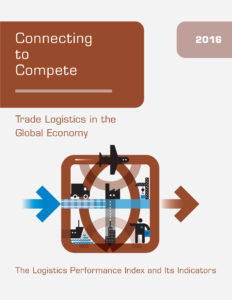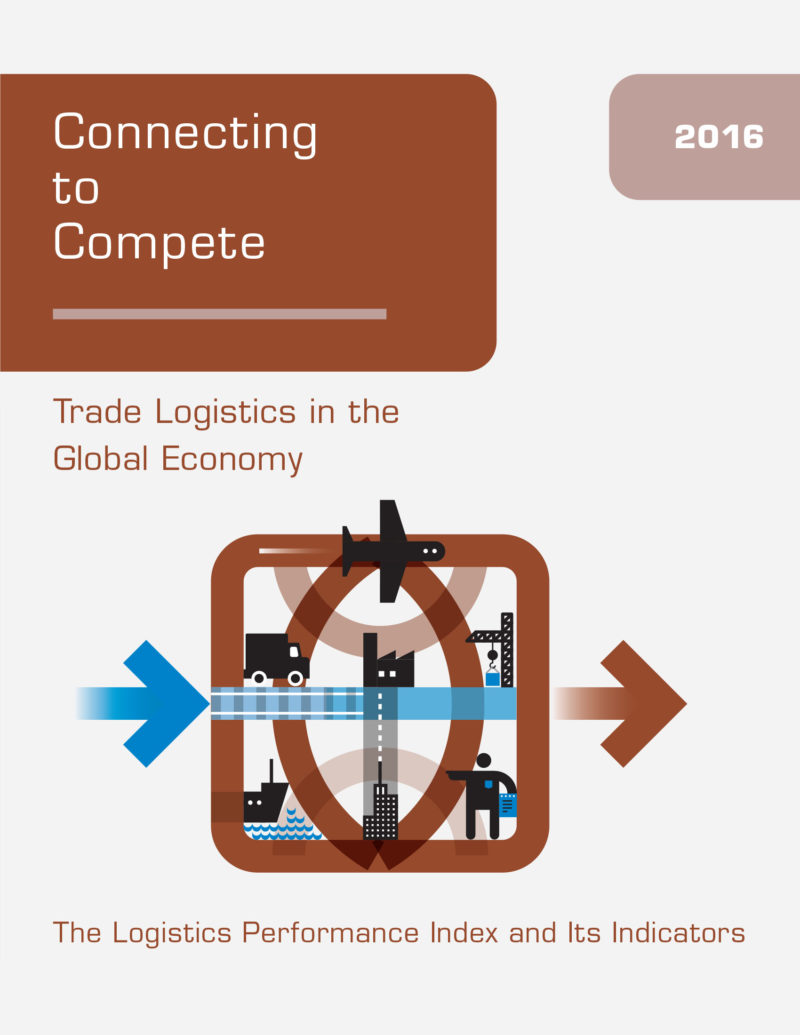 The Philippines’ ranking in the World Bank (WB) Logistics Performance Index (LPI) 2016 has declined further, falling 14 places to 71st place out of 160 countries from 57th in 2014.
The Philippines’ ranking in the World Bank (WB) Logistics Performance Index (LPI) 2016 has declined further, falling 14 places to 71st place out of 160 countries from 57th in 2014.
According to the WB’s latest LPI report entitled “Connecting to Compete 2016: Trade Logistics in the Global Economy,” the Philippines scored 2.89 this year, slumping further since 2010 when it scored 3.14 and ranked 44th.
The biennial report ranks countries based on key criteria of logistics performance, including border clearance efficiency, infrastructure quality, timeliness of shipments, ease of arranging competitively priced shipments, competence and quality of logistics services, and ability to track and trace consignments.
“The LPI plays an important role in raising awareness, and is often the starting point of a policy dialogue,” Daniel Saslavsky, trade specialist and co-author of the report, said in a statement.
For the second time in a row, Germany is the top performer with a score of 4.23, while Syria ranked last with 1.6.
The Philippines’ score dropped in all criteria except in timeliness of shipments, which jumped to 70th this year from 90th in 2014.
In the efficiency of the clearance process (i.e., speed, simplicity, and predictability of formalities) by border control agencies including customs, the country declined to 78th place from 47th. For the quality of trade- and transport-related infrastructure (e.g., ports, railroads, roads, information technology), the country decelerated to 82nd from 75th previously, and also declined to 60th place from 35th in the ease of arranging competitively priced shipments criteria.
For competence and quality of logistics services (e.g., transport operators, customs brokers), the country slipped to 77th from 61st and likewise fell to 73rd from 64th for the ability to track and trace consignments.
Despite the slump, the Philippines is still one of the top 10 performing lower middle-income economies, along with India, Kenya, Egypt, Indonesia, Vietnam, Pakistan, Ukraine, El Salvador, and Guyana.
In the Association of Southeast Asian Nations (ASEAN), the Philippines placed seventh, with Singapore still leading as the city state remained fifth overall. Only two ASEAN economies improved this year—Cambodia at 73rd from 83rd and Myanmar at 113th from 145th. Others all fell in ranking with Malaysia down to 32nd (from 25th), Thailand 45th (35th), Indonesia 63rd (53rd), Vietnam 64th (48th), while Brunei, which is new to the survey, ranked 70th.
This year’s other top performers are Luxembourg, Sweden, Netherlands, Singapore, Belgium, Austria, United Kingdom, Hong Kong, and United States of America. The top performing countries have changed only marginally since 2010, and include dominant players in the supply chain industry, the report noted.
“Logistics performance both in international trade and domestically is central to the economic growth and competitiveness of countries, and the logistics sector is now recognized as one of the core pillars of economic development,” the WB report stated.
“Efficient logistics connects firms to domestic and international markets through reliable supply chain networks. Conversely, countries characterized by low logistics performance face high costs, not merely because of transportation costs but also because of unreliable supply chains, a major handicap in integrating and competing in global value chains,” the report added.
One of the report’s key findings shows that the “logistics gap” between more developed and less developed countries persists, with high-income countries on average scoring 45% higher on the LPI than low-income countries.
However, it noted that “income alone does not explain performance” but “the willingness to reform and implement good practices and policies can have a direct impact on fluidity of crossborder shipments.”
It also pointed out that infrastructure continues to play a big role in assuring basic connectivity and access to gateways for most developing countries. – Roumina Pablo





